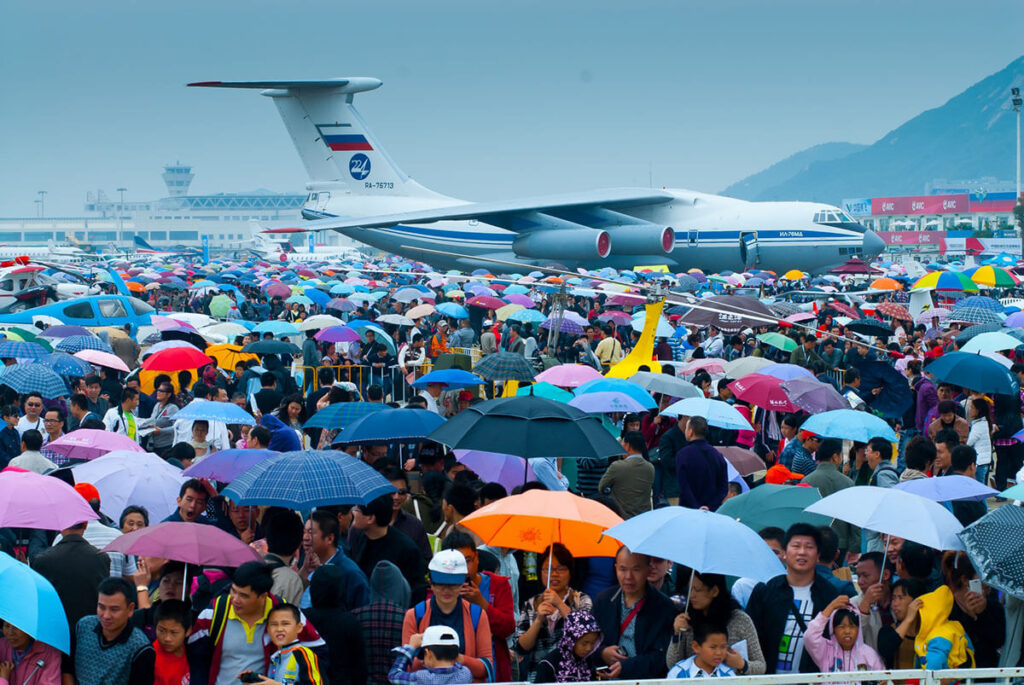The Organizing Committee of the China International Aviation and Aerospace Expo has announced that Airshow China, initially scheduled for November 10-15 this year, will be postponed to a later date to be determined.
Airshow China, also known as Zhuhai Airshow, is the only international aerospace trade show approved by the Chinese central government, with support from Chinese aerospace industries. The show takes place biennially in Zhuhai, Guangdong, China, focusing on displaying actual products, trade talks, technological exchange, and flying displays. It has traditionally also been used by the authority to show off its developing aviation capabilities such as military fighters and drones. Since 1996, Airshow China has successfully taken place for 12 sessions in a row.
There have been heated discussions in the industry since September, about whether the Airshow should be held again this year. As China’s only national-level aerospace technology and trading platform, Airshow China has a great significance to the industry. On the other hand, under the pandemic and changes in the external political and economic environment, the air show can hardly escape from the impact and influence.
On September 9th, Reuters released news that China Airshow is canceled according to a spokesperson from the organizer. But not long after the announcement, another spokesman made a second statement that said that the 13th Zhuhai Airshow will still be held as scheduled. He also reminded the public to follow official news from the website for any change.
Even excluding the COVID-19 factor, the impacts to Airshow China by trading environment change was seen at the 12th Airshow in 2018 already.
In 2018, due to the early stage of Sino US trade disputes, the transaction amount halved compared with the last exhibition in 2016. More than 569 contracts, agreements, and cooperation intentions with a value of more than 21.2 billion US dollars were signed in the previous air show from the data. During the 2016 air show, 402 contracts, agreements, and cooperation intentions with a value of more than 40 billion US dollars were signed.
The number reflects that the aviation industry is quite sensitive to changes in the environment. It could also be one of the concerns that the committee decides to postpone, since the value of signed deals might drop significantly if there is no big order of commercial aircraft trading.

